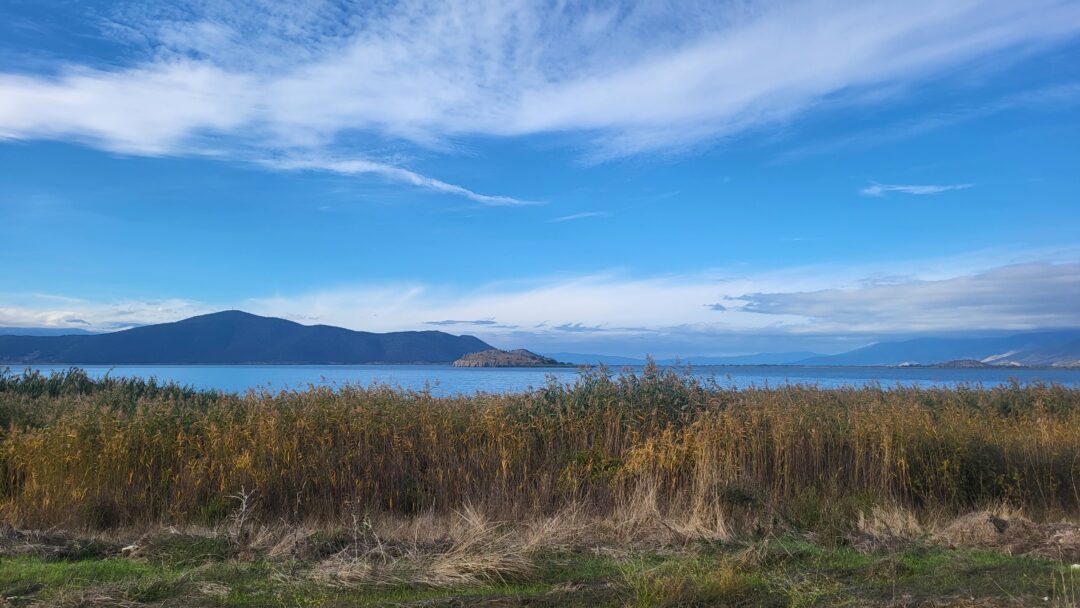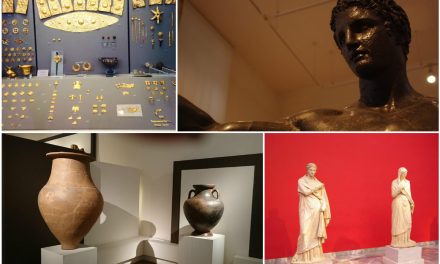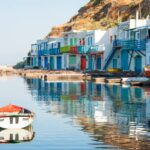The two-lake system of Great Prespa (Megali Prespa) and Little Prespa (Mikri Prespa), located at the north-western tip of Greece and surrounded by mountains, form one of Europe’s most important wetlands and a landscape of outstanding natural beauty. Hundreds of bird species nest and breed here, including Dalmatian pelicans, cormorants and herons.
The Prespes area, declared a “national park” in 1974, is protected by European and international conventions, while Little Prespa is also protected by the Ramsar Convention as a unique wetland. The Little Prespa Ramsar site covers an area of around 5,000 hectares and was one of the first to be included on the list of wetlands of international importance, in 1975.
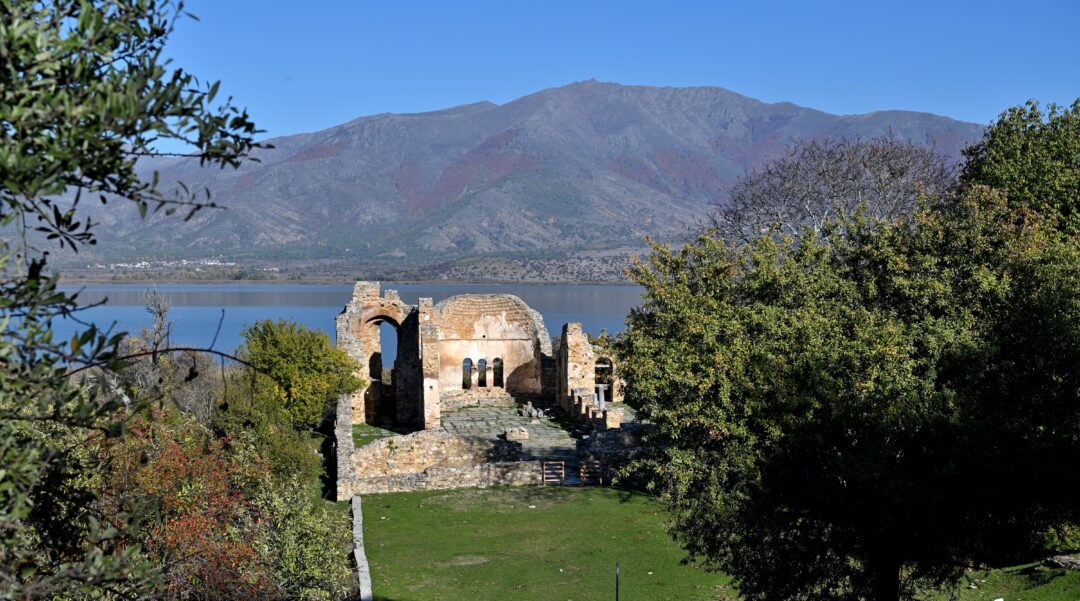
The area of Prespes Lakes is known not only for its natural beauty, rich biodiversity and waterfowl populations, but also for its cultural heritage, notably its Byzantine monuments and the traditional architecture of its villages (houses built of stone, wood, earth and reeds). The villages of Agios Germanos and Psarades (a traditional fishing village) are among the most picturesque in the region. One of the Prespes’ most famous sites is the islet of Agios Achillios (Mikri Prespa), home to the important monument of the Basilica of Agios Achillios, dating from the 10th century AD.
The best-known local produce are the giant white Prespes beans (“Gigantes” in Greek), a Protected Geographical Indication (PGI) product.
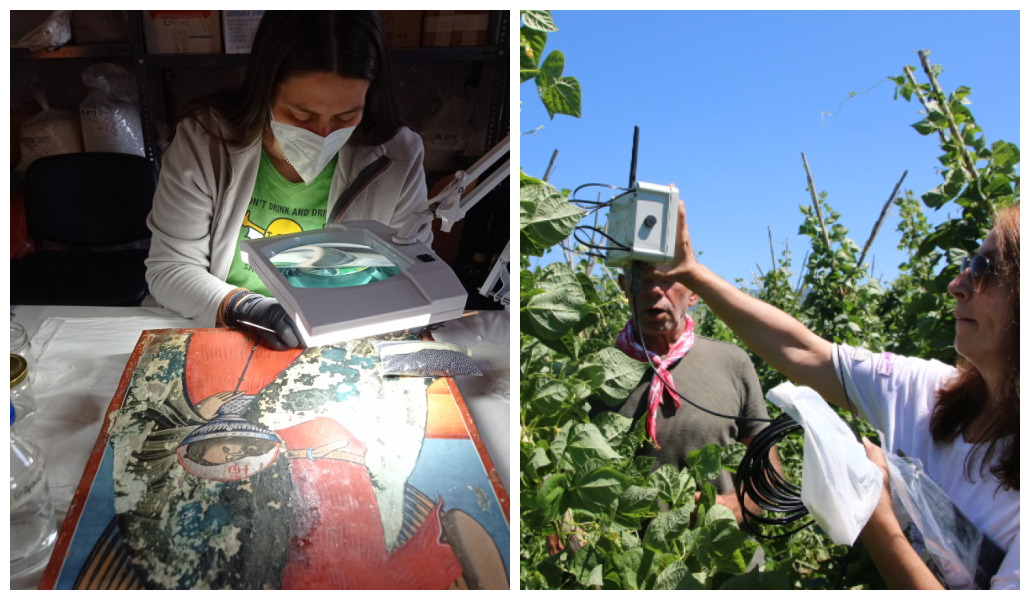
“Poliprespa”: a sustainable development program for the Prespes region
The “Poliprespa” program (2018-2023), which was designed specifically for the Prespes region, was made possible thanks to the collective effort and active participation of local residents and stakeholders, who implemented around 50 projects. Its aim was to create an innovative development model for the region, combining the preservation of the natural and cultural environment with improvements in the daily lives of local residents. The program, 40% of which was funded by the Stavros Niarchos Foundation, involved the municipality of Prespes, the Society for the Protection of Prespa, the “Pelekanos” agricultural cooperative, local schools and cultural and sports associations, among others. The three pillars of the “Poliprespa” program were: “Environment”, “Economy” and “Society”.
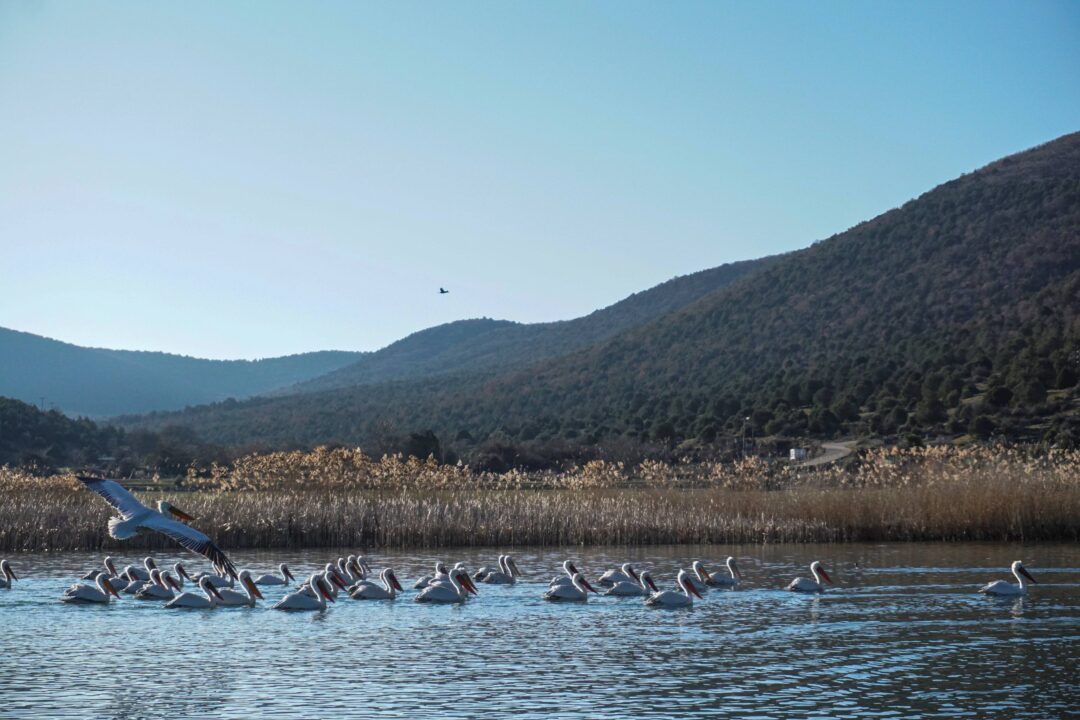
Environment
Protecting the natural environment and biodiversity is at the heart of the Poliprespa program. Environmental management projects were carried out to protect the wetland ecosystem, with benefits not only for biodiversity, but also for the local community. Within this framework, the rural development initiatives undertaken ensured the protection of natural resources.
The management of the Mikri Prespa reed bed (purchase of an amphibious machine for reed mowing), the use of plant biomass for animal feed and the intelligent agriculture project (use of an application for sustainable agriculture) are just some of the projects carried out.
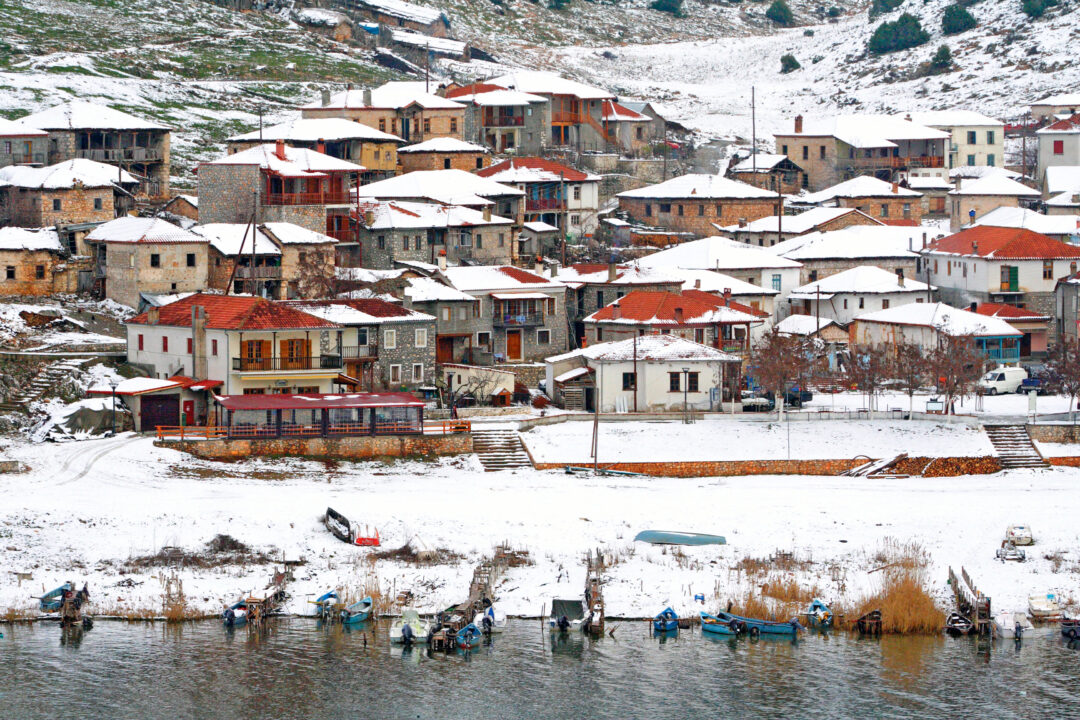
Economy
To strengthen the local economy, agro-environmental projects have been designed and implemented, with the aim of offering products and services specifically adapted to the characteristics of the Prespes area, such as the project to protect the quality of the famous IGP giant white beans.
Ecotourism is another project of the “Poliprespa” program, which aims to promote the development of sustainable tourism, preserving the region’s natural and cultural values. To this end, the old water mill of Agios Georgios (Europa Nostra Award 2016) has been restored. In addition, an app for five hiking trails and a workshop for the conservation of the region’s Byzantine antiquities have been created.
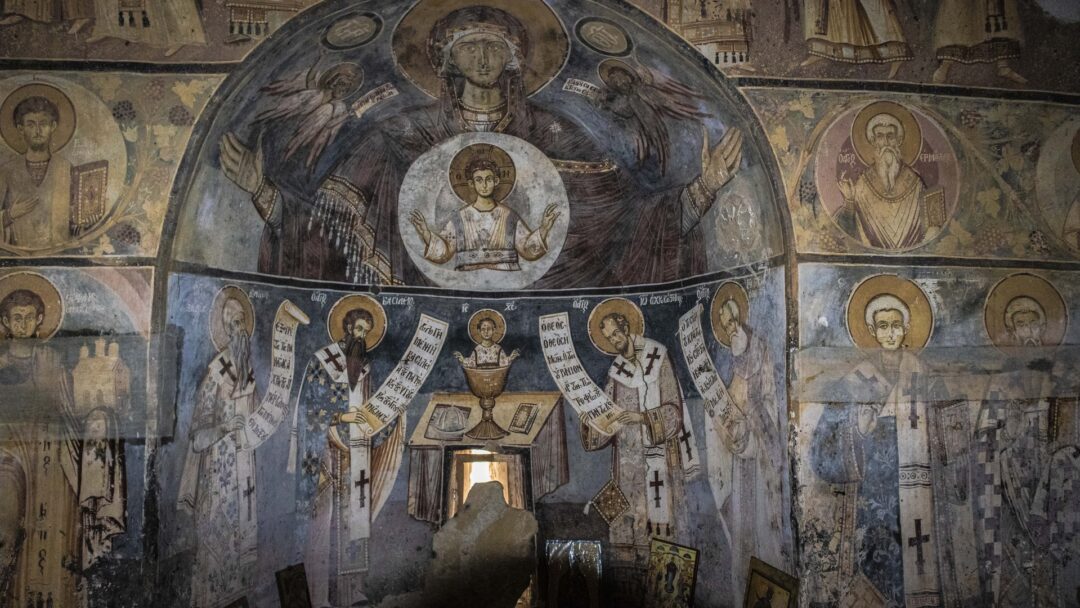
Society
The “Society” pillar includes projects implemented in the fields of education, sport and culture, which have contributed to improving social services and succeeded in cultivating the creativity and cooperation of the region’s children and young people.
The various projects were designed to meet the needs of local schools (equipping computer and chemistry laboratories, school outings and trips, etc.), as well as those of cultural and sports associations (organizing cultural events, upgrading facilities at the local sports center, participating in sporting events, etc.). The modernization of the municipal library has helped to attract a greater number of young people and children, as well as to organize a range of educational activities.
To mark the completion of the program, a digital platform is being developed to create an online community and facilitate cooperation between the inhabitants of the Prespes region.
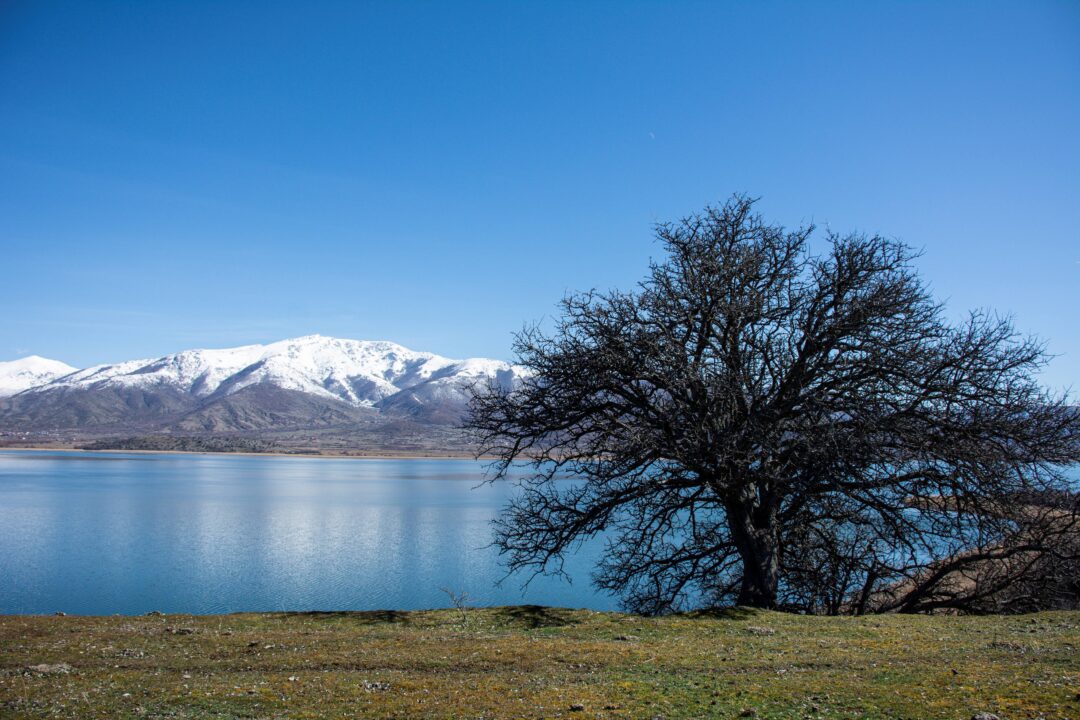
Translated from the original article which appeared on Grèce Hebdo (Intro image: © Society for the protection of Prespa/ Z. Anastasiadou)
Read also via Greek News Agenda: Fishing tourism: New opportunities open up for Greece; Greek Ramsar Wetlands
TAGS: DESTINATIONS | HERITAGE | NATURE

